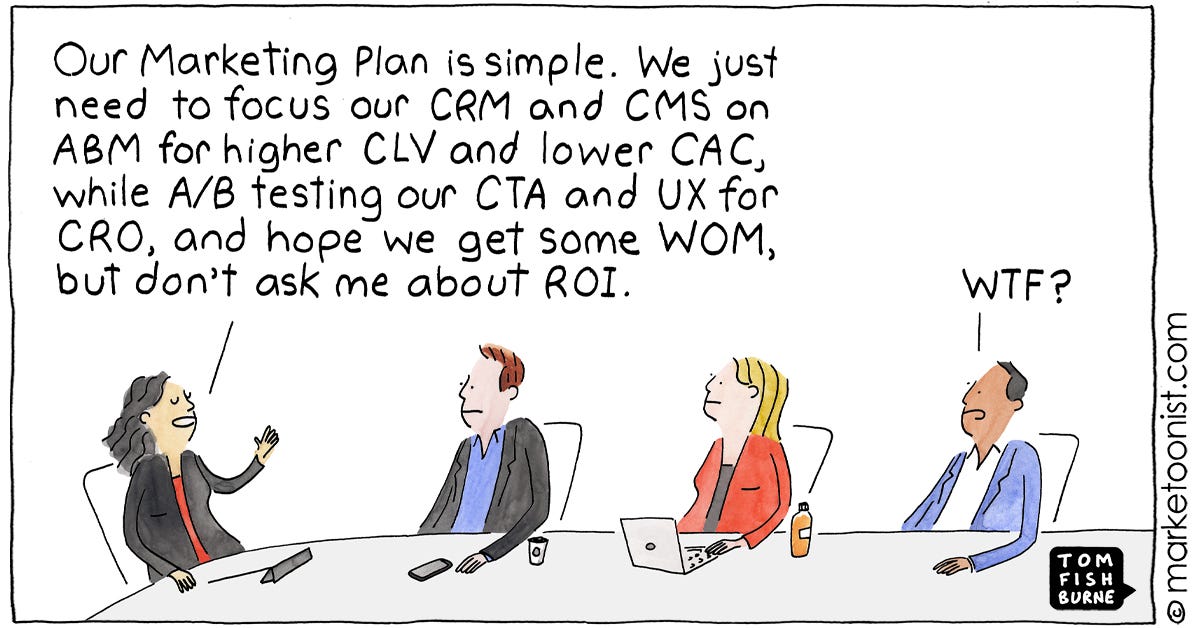Should we streamline how we communicate?
This is so I can understand you better, but I don't think you need to do the same? 🤔
“Dear Ma’am,
Please find attached my resume —”
Instant rejection. Email binned, deleted from trash, and sender blocked. Okay, maybe not that last one.
This happened because I didn’t know how to sound like I belonged, like I was native1 to that country. That’s the first step to getting your CV or cover letter read by a hiring manager. They expect you to sound like them, even if they can overcome the name/gender/race bias. You may not be American, British, or European but you've gotta sound like them on paper.
How much can you judge from an email?
In India, we’re taught that respect means never calling an elder by name. Whether that’s someone more experienced than you in a job, your teacher, or even your friend’s parents. In the West, it’s common to call everyone by name, no matter their age or relation to you. Not everyone’s an ‘aunty’ or ‘uncle’ or brother/sister. Relations are blood/marriage only.
Now, if you work in corporate India, you’re expected to use other people’s names. If you accidentally let an ‘Indianism’ slip — immediately, you’re marked as an outsider. Not educated enough or from the right institutions, not wealthy, not urban, not something that the others are.
I’ve never really given this much thought. I just thought I got better with experience, and now it’s very easy for me to write/sound exactly like my clients. I can code-switch with ease depending on where my client is from. It makes me sound like an expert they want to see working with their deliverables.
“Broadly, code-switching involves adjusting one’s style of speech, appearance, behavior, and expression in ways that will optimize the comfort of others in exchange for fair treatment, quality service, and employment opportunities.2 — Harvard Business Review
Impostor syndrome on expertise notwithstanding, I’ve come to realise that this is actually a hard-won skill. It’s taken a lot of trial and error and mimicking how and what others write in their emails to sound even remotely3 like they expect the person on the other end of that email.
I’ll use the phrase “have a think about it and get back to you” or sign off with an ‘x’ on my emails to UK folks, change to Zs and remove all the Us (color/honor/realize) with the US, and be politer-than-usual when talking to folks in Singapore. That’s the code-switching I’m talking about.
Whose version of a phrase is superior?
This is because the language we use is so heavily dominated by the Global North. The biggest companies in the world are mostly centred in that area, and it’s also the biggest hub for growing companies wanting to succeed worldwide.
The Global South mostly focuses on servicing the Global North. When you’re the one serving the US or the UK, you tend to adopt the language of your customer — you want them to feel at home, like you know your shit, like you’re an expert, so they’ll wanna buy from you.
Earlier, a lot of the menial, boring, and even some sales-y work was outsourced to India or similar countries with cheap labour. We’d have ‘call centres’ where Indians went and put on accents and talked in a British or American way, and the person on the other side, an actual American, would be served by someone who had imitated their country’s language and speaking style.
While we still have call centres, companies from the Global North have begun working with Indians more openly. Companies have set up branches in Mumbai, Delhi, and Bangalore or hire remotely. Indians have no problems working and collaborating with their international counterparts and taking full ownership of their work. But much, if not all, of their communication is still rooted in the way the Global North talks.
To quote a friend, “Mark from the Product team, who sits in San Franciso, knows I am in Mumbai. We are equals, the same company that employs him employs me, but I still need to sound like him so he understands me, and it never has to go the other way around.”
And that’s how the Global North’s culture of language trickles down to all of us outside. Usually, the language we use is derived from whatever’s the reigning industry there at the time. For example, many English metaphors are sailing-related4 —
“All aboard that project? Are we ready to launch? All hands on deck; smooth sailing; flagship product; by and large (in all conditions)”; and the nicest possible way to say you’ve got food poisoning: ‘under the weather.’
Now, many of those have been adopted by corporate America and, in turn, have bled into everyone’s work lingo.
Finance had terms like “leverage” and “standard deviations.” Marketing brought “thought leader” and “run it up the flagpole.” Technology developed “bandwidth” and “disrupt.” - Source
Can we keep the show-off speech to a minimum?
Currently, tech is the reigning industry in the world, and some words that have slowly made their way into our daily language from their jargon include:
Version control, backend (offices, product, etc), cutting edge tech/product/service, beta test, user-friendly, a glitch (!), (growth) hacking, etc.
Words like bandwidth, capacity, etc. have entered work lingo and also personal language now.
While this in itself is not a problem, it’s interesting to me because, currently, sounding like you know how to do your job is more important than actually knowing how to do it. That is a problem because we lose out on hiring or working with people who may be really talented and smart but just don’t know how to express themselves in the ‘correct’ industry terms.

Whenever I talk to folks I’d like to work with, I tell them that I hate jargon and prefer to keep my writing simple so it reaches more people. (Marketoonist called it Jargon-Monoxide Posioning). In industries like tech & SaaS, that’s a big thing because it can sometimes get super technical.
This jargon-y language can be really isolating for first-gen employees, who may not have seen the ‘right’ kind of movies or TV shows. They don’t know how to switch up their words according to who they’re talking to. Maybe they fumble, or they don’t know what a ‘town hall’ meeting is or whatever the in-company lingo is for an all-company meeting.
How can we foster a more inclusive culture of corporate lingo?
While I’ve talked about opening closed loops of knowledge in the past, the way language permeates our culture is implicit and ever-changing, so unless someone’s constantly updating a manual, there’s no real way to keep track of it5.
This is why, we need to be a bit more empathetic when we speak to someone at work, especially if they’re new — to the job, company, culture, country, whatever. And with the sheer number of applicants today, I know it’s absolutely ridiculous to expect hiring managers to look beyond great MAANG names on CVs and locations and whatever else they’re chasing (10+ years experience in AI/ChatGPT), but it would be great if the job description was less jargon-y. When you say that skills are transferable, it would be lovely if you meant it.
Succeeding in a job nowadays is all about knowing the right keywords and being able to bullshit with ease. Some of the smarter ones learn how to Google on the job (good for them, honestly), but for some hardworking folks, now knowing these essential keywords of their industry in other countries can be detrimental to their career growth.
Sometimes, they can also affect those who’ve been out of their profession for a short break. Maternity leaves, caring for sick family members, or even a sabbatical to combat burnout, all these breaks can make you feel like an outsider when you return — especially if there are random new acronyms and phrases to learn to fit into the team (and also do your work!).
Taking the time to go beyond a first impression, where someone makes an honest typo, calls you Sir/Ma’am, or uses the word ‘prepone’ instead of ‘advance’, can help us go beyond basic networking and actually form connections.
Because I don’t see a lot of folks judging the ‘could of’ in the UK or the easy ‘there/their/they’re’ mistake ‘y’all’ make in the US.
This article was nearly completely inspired by a chat with my friend Shreya, who needed to start her own newsletter, like, yesterday.
What did you think of this issue?
Your anonymous feedback helps me improve. Thanks!
If you liked this issue (or like the newsletter in general), feel free to buy me a coffee or two!
From my From my open tabs to yours! ✨
These are some really useful sentences that may or may not change your life upon being read. Idk who posted it, but “do it scared; do it unprepared” has been a recurring thought whenever I’ve tried something new recently.
A website that loads a random Palestinian fundraiser campaign each time you reload, so you’re connected to endless fundraisers with ease.
Emily Henry is proud to be called a romance writer. (And she’s a damn good one. Read more romance y’all; unabashedly, proudly, fully).
In the spirit of trying new things scared (and somewhat prepared), I went on a night trek up Garbett Plateau last weekend:

Have you tried anything new and/or slightly scary/difficult, etc., lately? Tell me about it? Perhaps we could share courage for the next one. :D
Thanks for reading! Please hit the heart below or drop a comment if you liked it (helps more people find this newsletter + gives me a serotonin boost). 🖤
We’ll come back to this problematic term another time.
Research suggests that code-switching often occurs in spaces where negative stereotypes of black people run counter to what are considered “appropriate” behaviors and norms for a specific environment.”
Pun intended.
Came across this info via a reel on Instagram, however that person has either gone private or taken that video down so I can’t link to it.
Think about it like youth slang. The word’ youth’ itself dates me right now, LOL.


I work in academia and I can confirm the jargon and acronyms is insane! I also code switch constantly depending on my email audience - faculty, bosses, other staff, or students
This was such a thought-provoking read! I work in publishing, which is super jargon-y, and I hadn’t even really thought about how much of my everyday communication is now infused with US corporate speak.